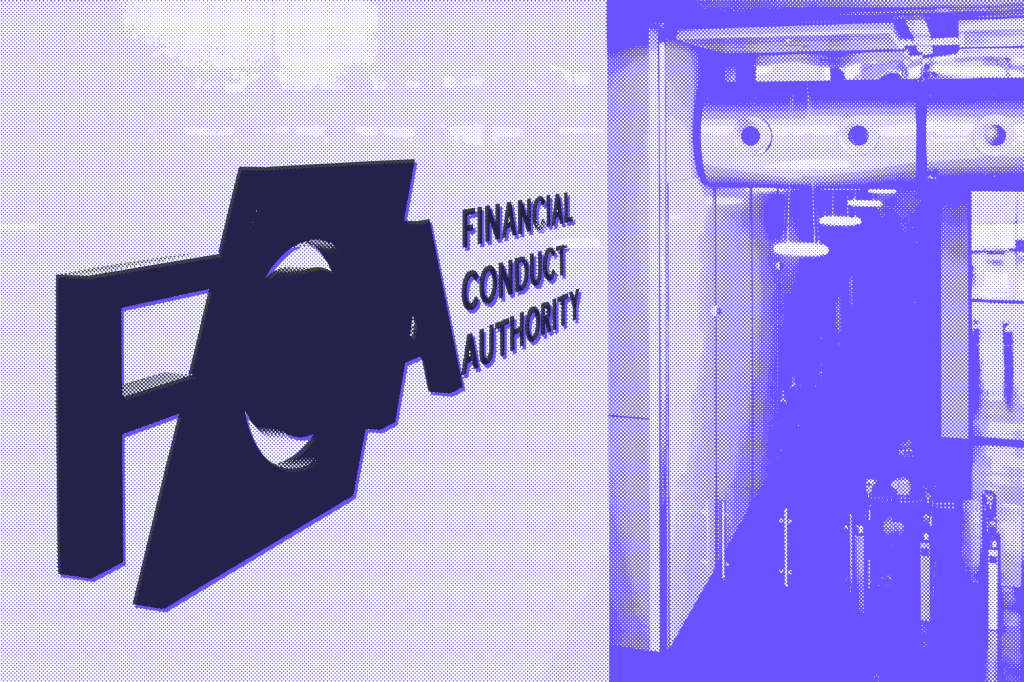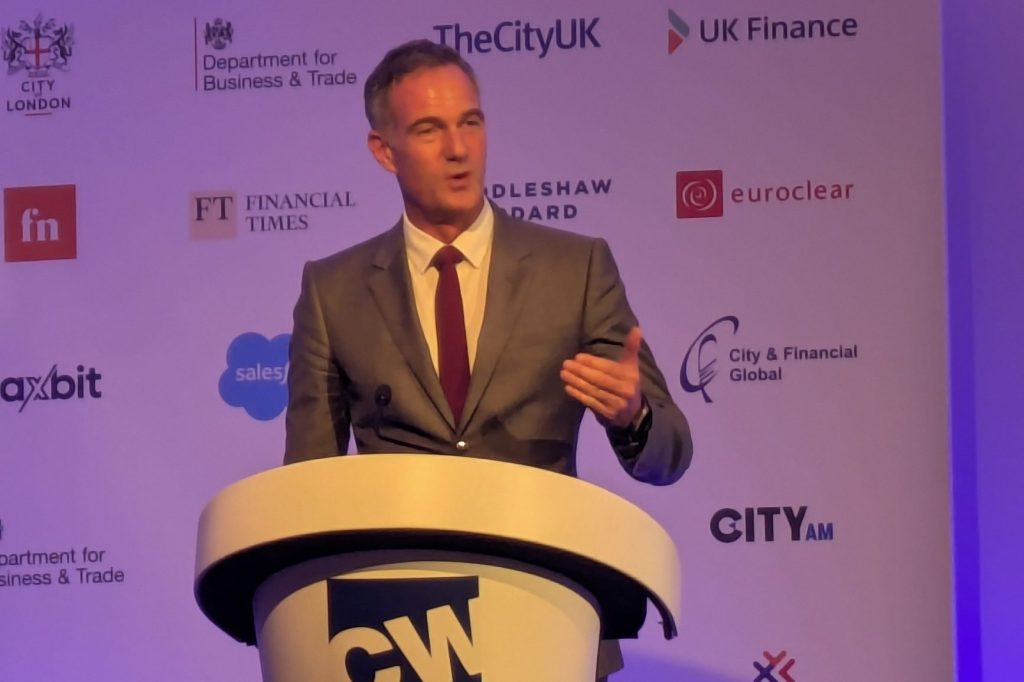The FCA has reversed its controversial plan to publicly “name and shame” companies under investigation, following a backlash from the City and government officials. The regulator will abandon its proposed “public interest test,” opting instead to maintain its existing, more stringent “exceptional circumstances” criteria for disclosure.
This reversal, confirmed in a statement published today, follows yesterday’s briefing between the FCA and industry bodies, marks a major U-turn for the UK financial watchdog. The FCA has also written to the Treasury Select Committee (TSC) today setting out its new approach to transparency of enforcement investigations. The decision has been greeted positively by the financial services industry.
Enforcement transparency
The FCA will proceed with plans to publicly name investigations already in the public domain, publishing public notifications which focus on the potentially unlawful activities of unregulated firms and regulated firms operating outside the regulatory perimeter; and publishing greater detail of issues under investigation on an anonymous basis, for example in an Enforcement Watch. This aspect of the policy received broader support within the financial services industry. The final policy will be published by the end of June along with an updated copy of the Enforcement Guide.
Nikhil Rathi, CEO, FCA, defended the FCA’s enforcement work to the TSC and said “we are speeding up.”
On the FCA’s enforcement transparency proposals, he explained: “We have always aimed to build a broad consensus. Considerable concerns remain about our proposal to change the way we publicise investigations into regulated firms, so we will stick to publicising in exceptional circumstances as we do today. We will implement changes which have commanded wider support and which we believe will help support our efforts to protect consumers from harm.”
Criticism which sparked defeat
The FCA’s initial proposal, announced in February 2024, sparked widespread criticism, with concerns raised that it would harm business and drive investment abroad.
Rathi faced mounting pressure to retract the policy, particularly amid government efforts to promote growth. The government has increasingly urged regulators to adopt a more pro-growth stance, exemplified by recent actions such as the proposed merger of the Payments Systems Regulator with the FCA and the replacement of the Competition and Markets Authority chair.
Despite the FCA’s attempts to mitigate concerns by offering a 10-day notice period and pledging to limit disclosures to one or two additional cases annually, the proposal failed to quell criticism. The House of Lords Financial Services Committee condemned the plan as an “abject failure,” with the Committee Chair Lord Michael Forsyth stating the FCA had not justified “such a fundamental change.”
Senior FCA officials had argued that public disclosure was necessary to protect consumers, citing instances like the British Steel pension advice mis-selling scandal. However, concerns were raised about the potential reputational damage to companies, given that two-thirds of FCA investigations conclude without enforcement action.
In response to these concerns, the FCA has reportedly tightened its investigation criteria. Since April 2023, the number of open investigations has decreased by 35% and all investigations resulting in no further action, have since closed.
Popular U-turn
“Dropping the name and shame initiative is a positive response,” said Simon Morris, a financial services partner with law firm CMS. “It shows the FCA will listen to the market when it expresses real concerns. Announcing investigations would have made the UK a global outlier, hardly consistent with the Chancellor’s call to regulate for growth and not for risk.”
Nathan Willmott, partner at Ashurst specialising in regulatory investigations and enforcement told GRIP: “The industry will applaud the FCA for listening to its concerns about the regulator disclosing details of firms placed under investigation.
“The issue had become a significant distraction for the regulator and has been viewed as undermining the UK’s competitiveness. Many hundreds of hours (and a fair share of political capital) over the last 12 months have been spent by FCA senior management defending this proposal, which could have been spent focusing on maintaining high standards across the industry and bringing down the backlog of investigations.”
Rob Mason, Director, Regulatory Intelligence Strategy & Market Intelligence at Global Relay, said: “This climbdown is (hopefully) the final step in a sorry chapter for the FCA, which has finally done the right thing in listening to the industry and government.
“What seems remarkable is the number of opportunities they have had to get this right and square this, but at each iteration they seem to have failed to do their homework properly which has ultimately resulted in this difficult U- turn. It has been a huge waste of time and effort, not to mention money, but they are now moving forward.
On looking for a constructive outcome following this year-long saga, Willmott observed: “One positive coming out of the FCA’s doomed naming and shaming proposals is that the financial services industry has rediscovered its collective voice. Not since the financial crisis has the industry come together in opposition to regulatory proposals, and as a result of this experience, firms and trade associations will now feel able to speak up against problematic regulatory change.”
What’s next for the FCA?
The FCA’s decision to U-turn has been broadly popular with the industry but many stakeholders are now questioning what’s next for the FCA. To put it simply, “is the FCA screwed?” as one veteran observer asked.
Mason lamented: “Unfortunately this is not an isolated incident in terms of poor decision making at the FCA, and Rathi must be feeling the pressure.”
What about Therese Chambers, Joint Executive Director of Enforcement & Market Oversight at the FCA? She’s been a spokesperson for “name and shame”, appearing on a variety of webinars and presenting at events. Also, what is the purpose of the FCA’s enforcement division?
Willmott said: “Although the proposal was very clearly an initiative pioneered by Therese Chambers, she will now be focused – alongside Steve Smart – on delivering on the promise of reforming the caseload and approach of the FCA’s enforcement division.”
Acknowledging that while the unfairness of the transparency proposals have been a focus of the industry over the last year, Willmott said: “There are actually much bigger issues that need to be grappled with across the enforcement function at the FCA. As a result of a strong desire to reduce the time taken to investigate cases, which had got out of hand, serious questions are being asked about the FCA’s approach to which cases are being referred for formal investigation, the conduct of investigations and issues of individual accountability of senior managers.”
On what’s what’s been happening in practice over the last 18 months, Willmott explained that the FCA is only taking on new cases “where no real investigation is needed, and then declining to investigate the conduct of individuals with responsibility for the relevant area of the business, because that would require a proper analysis of the business evidence, including interviews.
“As a result there is a real sense that the FCA is avoiding investigation of the more challenging issues with real importance for maintaining industry standards. This in turn raises real questions as to what purpose the FCA’s enforcement division is really serving.”
in relation to the proposal to have an Enforcement Watch style anonymized publication, Willmott said: “The FCA has historically always felt free to refer to topics it has referred to enforcement without naming the particular firms, typically when it reports to the industry on specific areas of concern following thematic reviews.
“If a regulator’s true objective is to help firms understand specific areas where it has concerns about how firms are managing particular risks, rather than the FCA trying to blow its own trumpet, then the optimal way of it doing so would be to flag these areas in the FCA’s periodic ‘portfolio letters’ which are focused on issues of relevance to particular categories of financial services firms. The desire to publish an overall Enforcement Watch summary of anonymised cases indicates that this is more of a PR exercise for the FCA enforcement division than serving the genuine interests of the industry, which for many was the overriding concern of the naming and shaming proposals as a whole.”

















